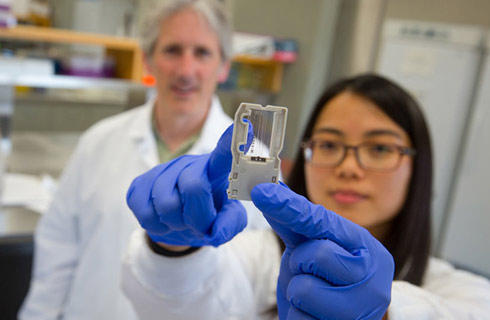Master of Science in Plant Pathology

学历文凭
Masters Degree

专业院系
植物病理学

开学时间

课程时长

课程学费

国际学生入学条件
International applicants must have a degree comparable to a regionally accredited U.S. bachelor’s degree.
English Language Requirement
Minimum TOEFL requirement: 92 internet (iBT); 580 paper-based test (PBT)
Minimum IELTS requirement: 7.0
IDP—雅思考试联合主办方

雅思考试总分
7.0
了解更多
- 雅思总分:7
- 托福网考总分:92
- 托福笔试总分:580
- 其他语言考试:Minimum Duolingo English Test requirement- 125
CRICOS代码:
申请截止日期:请 与IDP联系 以获取详细信息。
课程简介
The discipline of plant pathology is directed toward understanding and solving disease problems of plants. The field is broad and complex, integrating disciplines as varied as molecular biology, genetics, cell biology, organismal biology, population and community ecology, meteorology, statistics, computer science, chemistry, and physics. Plant pathology encompasses basic and applied research, employs both model systems and economically important plants, and requires both laboratory and field experimentation. Active research programs in the department encompass this full spectrum of questions and approaches, including research on virology, nematology, fungal genetics, tissue culture, soil microbiology and ecology, forest pathology, bacterial plant pathogens, molecular biology of parasite–host interactions, microbial ecology, epidemiology, and integrated disease management strategies.<br><br>The graduate program in plant pathology educates students in the science of plant pathology and prepares them for successful careers. Students develop the following skills required to meet diverse professional situations: excellence in research; breadth and depth in plant pathology; breadth in an allied field; strong critical and analytical thinking skills; and effective communication skills. Students become sufficiently knowledgeable in all aspects of plant pathology to identify key research questions, recognize significant discoveries, and think analytically about interpretation of data.<br><br>The level of proficiency in specific areas will vary with the student's research area and career goals, and will be appropriate to the student's degree program (MS or PhD). Specific areas of proficiency addressed by the PhD curriculum include etiology, diagnosis, and management of plant disease; ecology and epidemiology; genetics and physiology of plant–microbe interactions; and organismal biology. PhD students may elect an optional professional development experience as part of their curriculum. Graduates of the program attain positions in teaching, research in academic positions, government services, industry, extension services, and private practice.
相关申请

预科

奖学金

实习机会

在校学习

跨境学习

校园授课-线上开始

在线/远程学习
学校排名
世界排名
43
数据源:泰晤士高等教育世界大学排名
本校相关课程
Bachelor of Social Work

学历文凭
Bachelor Degree
下一个开始日期
课程费用总额
Bachelor of Arts in Zoology

学历文凭
Bachelor Degree
下一个开始日期
课程费用总额
Bachelor of Science in Theatre and Drama

学历文凭
Bachelor Degree
下一个开始日期
课程费用总额
Bachelor of Arts in Social Welfare

学历文凭
Bachelor Degree
下一个开始日期
课程费用总额
Bachelor of Arts in Scandinavian Studies

学历文凭
Bachelor Degree
下一个开始日期
课程费用总额
Bachelor of Science in Physics

学历文凭
Bachelor Degree
下一个开始日期
课程费用总额
其他相关课程
Master of Science in Plant Science - Plant Pathology

怀俄明大学
泰晤士高等教育世界大学排名:990

学历文凭
Masters Degree
下一个开始日期
课程费用总额
Doctor of Philosophy in Plant Pathology

加州大学河滨分校
泰晤士高等教育世界大学排名:

学历文凭
Ph.D.
下一个开始日期
课程费用总额
毒理学理学硕士-植物病理学

佐治亚大学
泰晤士高等教育世界大学排名:

学历文凭
Masters Degree
下一个开始日期
课程费用总额
植物病理学理学硕士

宾州州立大学帕克分校
泰晤士高等教育世界大学排名:

学历文凭
Masters Degree
下一个开始日期
课程费用总额
Master of Science in Plant Pathology

加州大学戴维斯分校
泰晤士高等教育世界大学排名:

学历文凭
Masters Degree
下一个开始日期
课程费用总额
Master of Science in Plant Pathology

阿肯色大学
泰晤士高等教育世界大学排名:751

学历文凭
Masters Degree
下一个开始日期
课程费用总额




